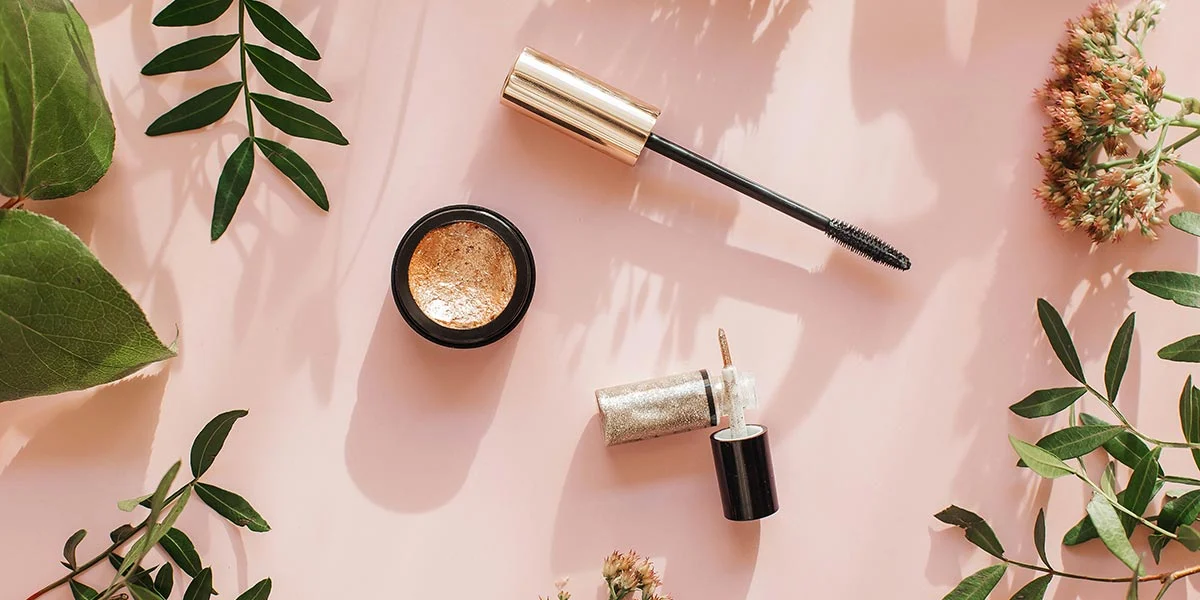
Mar 9, 2023
Cost, quality, and branding have traditionally driven most purchasing decisions. But in recent years, a new consideration has entered the mix. A socially conscious generation has motivated change across countless industries, all the way from production to marketing. Sustainability has emerged as a high priority for consumers, stimulating the re-emergence (yes, re-emergence), of natural, bio-based cosmetics.
Valued at $7.4 billion in 2022, the global market for bio-based cosmetics has been estimated by BCC Research to reach as much as $10.5 billion by 2027. This market growth reflects the changing face of the beauty industry as consumers and companies alike carve out a new path dedicated to sustainability.
The dual benefits of natural beauty
An environmentally conscious society has created a paradox. Instead of seeking new, innovative technologies that help mitigate climate change, companies are winding back the clock, resorting to the tried-and-true methods of bygone years: Simple, natural products.
Within makeup, ‘simple’ products have numerous benefits. Firstly, they’re better for the environment. Ingredients are derived from natural sources, meaning they won’t pollute the environment upon degradation, and sourcing them isn’t ecologically damaging, either. In the past, petrochemical-based ingredients comprised the bulk of cosmetics formulas. These had to be extracted from fossil fuels which, as we all know, is a primary cause of climate change.
From a health standpoint, bio-based cosmetics also offer a far safer alternative to chemical-based cosmetics. The chemicals in synthetic cosmetics can be absorbed into the bloodstream, creating a cocktail of health implications – many of which are largely unknown. Reports of side effects like skin sensitivity, allergies, and skin peeling are not uncommon – which natural products can eliminate.
Consumers today are not only concerned about the wellbeing of the planet, but also their own health. According to Soil Association, in the UK, over 15% of annual growth is observed in certified natural and organic beauty and wellness products. 2021 represented the 11th year of consecutive growth. Bio-based cosmetics is a market bursting with potential, as consumers seek products that answer their modern concerns.
Millennials are driving the market
Modern consumers are switched on when it comes to society and the environment. But there is no demographic more committed to sustainability and with a greater purchase power than that of the millennial.
According to the World Economic Forum, millennials make up approximately 23% of the global population. And out of all generations, millennials are considered to be the most educated and influential. In China, they hold over two-thirds of the nation's total passports. In the US, the per capita expenditure by millennials is likely to grow by 10% by 2025.
Millennial women (with Gen-Z following dutifully in their wake) have emerged as the leading consumer segment in the bio-based cosmetics market. Their buying power is transforming the beauty industry into a budding, sustainable Eden.
Effective marketing strategies
While millennials are a cohort of independent thinkers, they aren’t immune to effective marketing. Brands are differentiating themselves by deploying clever branding strategies, aimed at capitalizing on the growing consumer inclination toward sustainable products.
Unilever, for example, is investing in science and technology development to enhance its sustainable product portfolio and packaging. In 2022, they launched a program called “Positive Beauty Growth Platform,” which is aimed at inviting startups, academic spinouts, and companies to partner and find biodegradable solutions for hair and skin care products.
And that’s without considering the seismic role of influencers in the beauty landscape. According to the Digital Marketing Institute, approximately 70% of teenagers rely more on influencers than conventional celebrity endorsers. At the same time, 49% of consumers trust influencer recommendations while making buying decisions. Meanwhile, 86% of women utilize social media for product recommendations.
Merit Beauty represents just one of the many brands that have made good use of YouTube vloggers to promote its products. Vloggers like Sedona Christina and Kristen Arnett are effective champions of natural beauty products. Increasingly, brands are utilizing these channels to connect directly with environmentally savvy consumers.
The cost of sustainable beauty
Bio-based cosmetics is a consumer-driven space. To maintain appeal, companies are having to innovate their product ingredients, packaging, and marketing strategies. With prices high for many of the raw materials associated with bio-based cosmetics, it can be an intimidating playing field to enter.
What’s more, companies must find natural alternatives to petrochemical-based ingredients that don’t nosedive product efficacy. While consumers may accept some deviations from the cosmetic standards they’re accustomed to, this has a line. Natural formulas require careful research and innovation to match consumers’ expected results.
Match the growth of the bio-based cosmetics industry
Bio-based cosmetics products are rapidly gaining consumer attention. Millennials and Gen-Zs, the prime target consumer segment, are increasingly switching to products that are efficient yet have minimal environmental impact.
BCC Research’s report Bio-based Products in the Cosmetics Industry: Global Markets breaks down the current market landscape, providing an invaluable guide for those hoping to make waves in the industry. We offer complimentary report overviews for those interested in our research – download your copy here.
We publish a huge number of reports in the Chemicals category. Membership with our research library provides access to the full catalog of these reports. Get in touch below to find out more.

Olivia Lowden is a Junior Copywriter at BCC Research, writing content on everything from sustainability to fintech. Before beginning at BCC Research, she received a First-Class Master’s Degree in Creative Writing from the University of East Anglia.

Biophotonics: Technologies and Global Markets (PHO024B)

Global Trade: A Strategic Shift The global trade environment is undergoing a dra...

The global demand for cutting-edge materials continues to rise, and at the foref...

We are your trusted research partner, providing actionable insights and custom consulting across life sciences, advanced materials, and technology. Allow BCC Research to nurture your smartest business decisions today, tomorrow, and beyond.
Contact UsBCC Research provides objective, unbiased measurement and assessment of market opportunities with detailed market research reports. Our experienced industry analysts assess growth opportunities, market sizing, technologies, applications, supply chains and companies with the singular goal of helping you make informed business decisions, free of noise and hype.